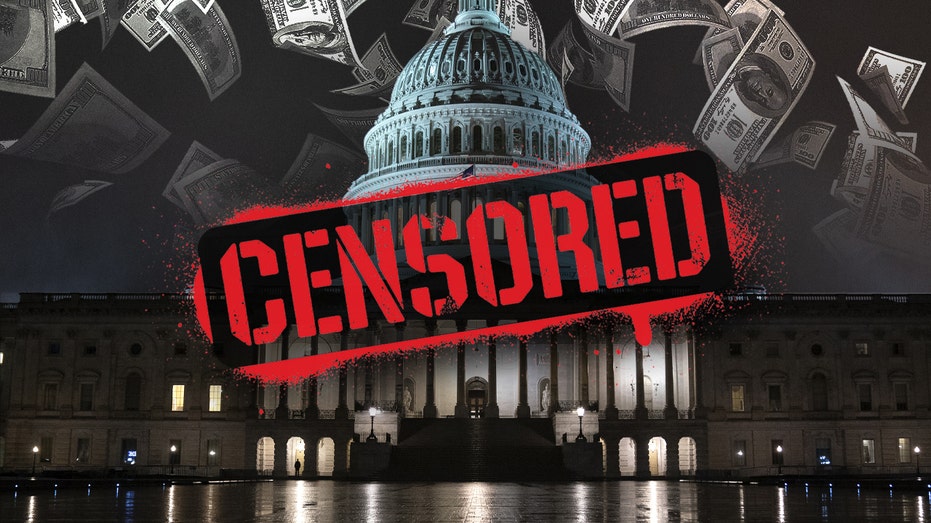State Department's 'Global Engagement Center' accused of censoring Americans shuts its doors
The State Department’s foreign disinformation center, accused by conservatives of censoring American citizens, shut its doors due to lack of funding this week.

The State Department’s foreign disinformation center, accused by conservatives of censoring U.S. citizens, shut its doors due to lack of funding this week.
Elon Musk had deemed the Global Engagement Center (GEC), established in 2016, the "worst offender in U.S. government censorship & media manipulation," and its funding was stripped as part of the National Defense Authorization Act (NDAA), the Pentagon’s yearly policy bill.
"The Global Engagement Center will terminate by operation of law [by the end of the day] on December 23, 2024," a State Department spokesperson said in a statement. "The Department of State has consulted with Congress regarding next steps."
Lawmakers had originally included funding for the GEC in its continuing resolution (CR), or bill to fund the government beyond a Friday deadline. But conservatives balked at that iteration of the funding bill, and it was rewritten without money for the GEC and other funding riders.
The agency had a budget of around $61 million and 120 people on staff.
At a time when adversaries like Iran and Russia sow disinformation throughout the world, Republicans saw little value in the agency’s work, arguing that much of its disinformation analysis is already offered by the private sector.
The GEC, according to reporter Matt Taibbi, "funded a secret list of subcontractors and helped pioneer an insidious—and idiotic—new form of blacklisting" during the pandemic.
Taibbi wrote last year when exposing the Twitter Files that the GEC "flagged accounts as ‘Russian personas and proxies’ based on criteria like, ‘Describing the Coronavirus as an engineered bioweapon,’ blaming ‘research conducted at the Wuhan institute,’ and ‘attributing the appearance of the virus to the CIA.’"
"State also flagged accounts that retweeted news that Twitter banned the popular U.S. website ZeroHedge, claiming that it 'led to another flurry of disinformation narratives.'" ZeroHedge had made reports speculating that the virus had a lab origin.
The GEC is part of the State Department but also partners with the Federal Bureau of Investigation, the Central Intelligence Agency, the National Security Agency, the Defense Advanced Research Projects Agency, the Special Operations Command and the Department of Homeland Security. The GEC also funds the Atlantic Council's Digital Forensic Research Lab (DFRLab).
SPENDING BILL TO FUND STATE DEPARTMENT AGENCY ACCUSED OF CENSORING, BLACKLISTING AMERICANS
DFRLab Director Graham Brookie previously denied the claim that they use tax money to track Americans, saying its GEC grants have "an exclusively international focus."
A 2024 report from the Republican-led House Small Business Committee criticized the GEC for awarding grants to organizations whose work includes tracking domestic as well as foreign misinformation and rating the credibility of U.S.-based publishers, according to the Washington Post.
The lawsuit was brought by Texas Attorney General Ken Paxton, the Daily Wire and the Federalist, who sued the State Department, Secretary of State Antony Blinken and other government officials earlier this month for "engaging in a conspiracy to censor, deplatform and demonetize American media outlets disfavored by the federal government."
The lawsuit stated that the GEC was used as a tool for the defendants to carry out its censorship.
"Congress authorized the creation of the Global Engagement Center expressly to counter foreign propaganda and misinformation," the Texas Attorney General’s Office said in a press release. "Instead, the agency weaponized this authority to violate the First Amendment and suppress Americans’ constitutionally-protected speech.
The complaint describes the State Department’s project as "one of the most egregious government operations to censor the American press in the history of the nation.’"
The lawsuit argued that The Daily Wire, The Federalist and other conservative news organizations were branded "unreliable" or "risky" by the agency, "starving them of advertising revenue and reducing the circulation of their reporting and speech—all as a direct result of [the State Department’s] unlawful censorship scheme."
Meanwhile, America First Legal, headed up by Stephen Miller, President-elect Donald Trump’s pick for deputy chief of staff for policy, revealed that the GEC had used taxpayer dollars to create a video game called "Cat Park" to "Inoculate Youth Against Disinformation" abroad.
The game "inoculates players . . . by showing how sensational headlines, memes, and manipulated media can be used to advance conspiracy theories and incite real-world violence," according to a memo obtained by America First Legal.
Mike Benz, the executive director at the Foundation For Freedom Online, said the game was "anti-populist" and pushed certain political beliefs instead of protecting Americans from foreign disinformation, accordig to the Tennessee Star.



